President: Serbia has two parallel, achievable objectives
Serbian President Boris Tadić said Friday in New York that Serbia had two parallel objectives.
Saturday, 24.09.2011.
11:43

Serbian President Boris Tadic said Friday in New York that Serbia had two parallel objectives. He pointed out that the objectives were to secure a mutually-acceptable arrangement in Kosovo needed to provide iron-clad guarantees for the Serbian communities and to accelerate its progress to membership of the EU. President: Serbia has two parallel, achievable objectives Addressing the participants of the 66th Session of the UN General Assembly, Tadic pointed out both objectives were achievable and it would be foolish for anyone to think that one objective would be sacrificed on the altar of the other. "It is for others to decide whether they think that the achievement of these two objectives is for the good of the region and for stability. We are convinced that it is in everyone's interest," the Serbian president stressed. According to him, Serbia takes grave offence at the climate of threat surrounding Kosovo, which is emanating from countries which it would otherwise consider its most natural partners. The president strongly condemned the support from one part of the international community to Pristina's unilateral attempts to impose its customs officers on the administrative line in northern Kosovo. "In times as complex as these, our objective must be to manage real crises well and to avoid creating unnecessary ones. There are problems which can be resolved through patient discussion and the building of trust. Unilateral action in such circumstances simply creates crisis for no good reason," he explained. "Negotiations and reconciliation are not achieved through unilateral concessions from one side only. Success does not occur when threats of violence are issued and physical action takes place in the course of negotiations," Tadic said. “Serbia will stay committed to the ongoing talks with Pristina and will remain a very active party to this dialogue,” he added. "There are numerous issues that must be addressed in the months ahead and I appeal to all involved to remain engaged in this process in a spirit of constructiveness. To that end, we expect KFOR and EULEX to fully observe the UN's doctrine of status-neutrality, in accordance with their mandates under Security Council resolution 1244 (1999)-the source of their universal legitimacy, both on the ground and in the international arena," Tadic said. The Serbian president specified any understanding on the matter of Kosovo must include agreement guaranteeing the protection of Serbs in Kosovo. According to him, this requires solving issues related to the status of the Serbian population in northern Kosovo, decentralization, the status of Serbian Orthodox Church (SPC) monuments and holy sites, and private and commercial property claims. The status of the Serb population in North Kosovo, Tadic warned, must be addressed on the basis of the current realities, and attempts to change the current realities would not be conducive to constructive solutions. When it comes to decentralization, the president explained that all the enclaves that were isolated from other Serbs must have a political, judicial and economic life providing the standards that allow them to prosper where they are, adding that Serbia remained ready to continue to provide the necessary support to these threatened populations. “The Serbian Orthodox Church and of some of its key holy sites must be given special status, and the denial of this should be considered a total embarrassment to the authorities in Pristina and the international institutions present in Kosovo,” he pointed out. According to him, the last key issue is the question of property, where outstanding claims have made hostages of those internally displaced in 1999. "The failure to advance with goodwill on the very issue - the rights of the Serbian communities in Kosovo - which is at the core of our concerns is very disturbing. These four issues are for us the litmus test," Tadic stressed. "I look forward to the day when I can stand at this podium and report that we have resolved this issue-that we have found a mutually-acceptable compromise, not an imposed outcome where one side gets everything it has ever wanted, and the other side gets nothing," Tadic said. When it comes to the pro-European policy of the Belgrade government, the president said he believed Serbia had met the criteria to be invited to be a candidate for membership of the European Union and to start accession negotiations. "And, I believe that if this were to occur, Serbia would, for the first time in twenty years of relative isolation, begin to believe that the EU actually sees Serbia as an integral part of a complete European Union," the Serbian president stated, adding that that the presence of Serbia as a candidate was also an important asset for the EU. “In addition to its constructive approach to solving the Kosovo issue, Serbia has set an example in the region in matters related to reconciliation, the establishment of rule of law, the fight against organized crime and building the administrative capacity to handle European norms,” Tadic noted. He especially stressed Serbia's role in regional reconciliation, saying that Belgrade was actively considering seeking the Chairmanship-in-Office of OSCE in 2014 - the centenary of the start of the First World War. Recalling the arrest of the last two fugitives indicted by the Hague Tribunal, Tadic said this exercise was a very necessary catharsis for the nation after the tragedies of the 1990s and demonstrated that it wishes to move to a climate of total reconciliation throughout the region. "This is the standard that must be applied in uncovering the full truth about allegations made in a deeply disturbing report by the Council of Europe entitled ‘Inhuman Treatment of People and Illicit Trafficking in Human Organs in Kosovo.’ Only the Security Council can make sure a comprehensive investigation takes place. Only it can give a universal mandate and jurisdiction to ensure that all perpetrators of war crimes in the Balkans are brought to justice, including those responsible for human organs trafficking in Kosovo," the president stressed. In his speech, he also noted the complex international relations, above all the economic crisis, climatic turbulence and the political and security changes sweeping through the Middle East. Tadic repeated that Serbia remained sincerely committed to confronting the global challenges of today. Boris Tadic
President: Serbia has two parallel, achievable objectives
Addressing the participants of the 66th Session of the UN General Assembly, Tadić pointed out both objectives were achievable and it would be foolish for anyone to think that one objective would be sacrificed on the altar of the other."It is for others to decide whether they think that the achievement of these two objectives is for the good of the region and for stability. We are convinced that it is in everyone's interest," the Serbian president stressed.
According to him, Serbia takes grave offence at the climate of threat surrounding Kosovo, which is emanating from countries which it would otherwise consider its most natural partners.
The president strongly condemned the support from one part of the international community to Priština's unilateral attempts to impose its customs officers on the administrative line in northern Kosovo.
"In times as complex as these, our objective must be to manage real crises well and to avoid creating unnecessary ones. There are problems which can be resolved through patient discussion and the building of trust. Unilateral action in such circumstances simply creates crisis for no good reason," he explained.
"Negotiations and reconciliation are not achieved through unilateral concessions from one side only. Success does not occur when threats of violence are issued and physical action takes place in the course of negotiations," Tadić said.
“Serbia will stay committed to the ongoing talks with Priština and will remain a very active party to this dialogue,” he added.
"There are numerous issues that must be addressed in the months ahead and I appeal to all involved to remain engaged in this process in a spirit of constructiveness. To that end, we expect KFOR and EULEX to fully observe the UN's doctrine of status-neutrality, in accordance with their mandates under Security Council resolution 1244 (1999)-the source of their universal legitimacy, both on the ground and in the international arena," Tadić said.
The Serbian president specified any understanding on the matter of Kosovo must include agreement guaranteeing the protection of Serbs in Kosovo.
According to him, this requires solving issues related to the status of the Serbian population in northern Kosovo, decentralization, the status of Serbian Orthodox Church (SPC) monuments and holy sites, and private and commercial property claims.
The status of the Serb population in North Kosovo, Tadić warned, must be addressed on the basis of the current realities, and attempts to change the current realities would not be conducive to constructive solutions.
When it comes to decentralization, the president explained that all the enclaves that were isolated from other Serbs must have a political, judicial and economic life providing the standards that allow them to prosper where they are, adding that Serbia remained ready to continue to provide the necessary support to these threatened populations.
“The Serbian Orthodox Church and of some of its key holy sites must be given special status, and the denial of this should be considered a total embarrassment to the authorities in Priština and the international institutions present in Kosovo,” he pointed out.
According to him, the last key issue is the question of property, where outstanding claims have made hostages of those internally displaced in 1999.
"The failure to advance with goodwill on the very issue - the rights of the Serbian communities in Kosovo - which is at the core of our concerns is very disturbing. These four issues are for us the litmus test," Tadić stressed.
"I look forward to the day when I can stand at this podium and report that we have resolved this issue-that we have found a mutually-acceptable compromise, not an imposed outcome where one side gets everything it has ever wanted, and the other side gets nothing," Tadić said.
When it comes to the pro-European policy of the Belgrade government, the president said he believed Serbia had met the criteria to be invited to be a candidate for membership of the European Union and to start accession negotiations.
"And, I believe that if this were to occur, Serbia would, for the first time in twenty years of relative isolation, begin to believe that the EU actually sees Serbia as an integral part of a complete European Union," the Serbian president stated, adding that that the presence of Serbia as a candidate was also an important asset for the EU.
“In addition to its constructive approach to solving the Kosovo issue, Serbia has set an example in the region in matters related to reconciliation, the establishment of rule of law, the fight against organized crime and building the administrative capacity to handle European norms,” Tadić noted.
He especially stressed Serbia's role in regional reconciliation, saying that Belgrade was actively considering seeking the Chairmanship-in-Office of OSCE in 2014 - the centenary of the start of the First World War.
Recalling the arrest of the last two fugitives indicted by the Hague Tribunal, Tadić said this exercise was a very necessary catharsis for the nation after the tragedies of the 1990s and demonstrated that it wishes to move to a climate of total reconciliation throughout the region.
"This is the standard that must be applied in uncovering the full truth about allegations made in a deeply disturbing report by the Council of Europe entitled ‘Inhuman Treatment of People and Illicit Trafficking in Human Organs in Kosovo.’ Only the Security Council can make sure a comprehensive investigation takes place. Only it can give a universal mandate and jurisdiction to ensure that all perpetrators of war crimes in the Balkans are brought to justice, including those responsible for human organs trafficking in Kosovo," the president stressed.
In his speech, he also noted the complex international relations, above all the economic crisis, climatic turbulence and the political and security changes sweeping through the Middle East.
Tadić repeated that Serbia remained sincerely committed to confronting the global challenges of today.










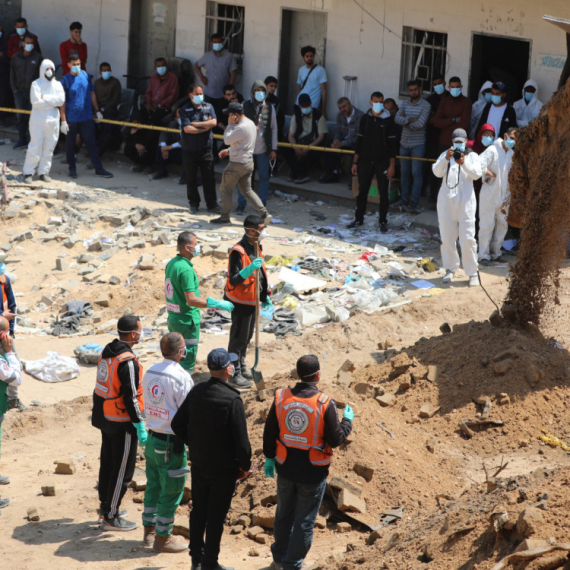

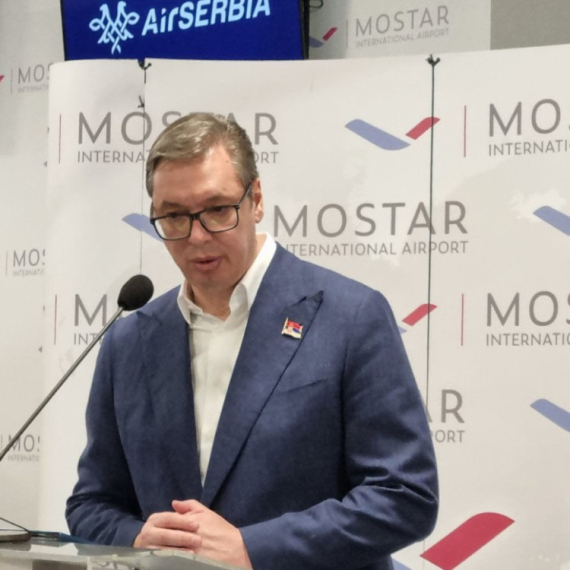
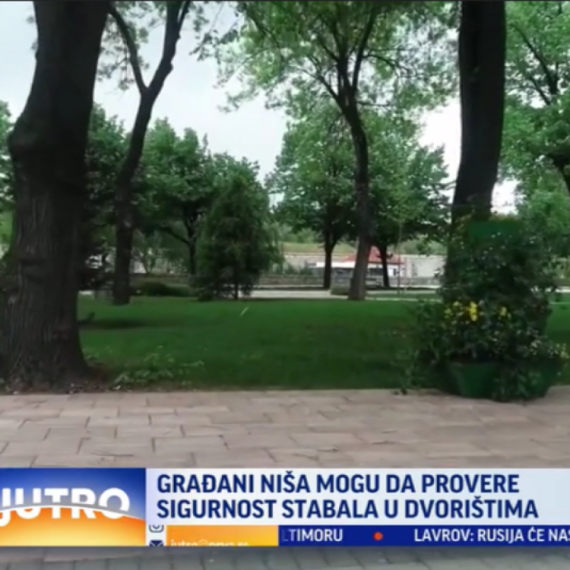













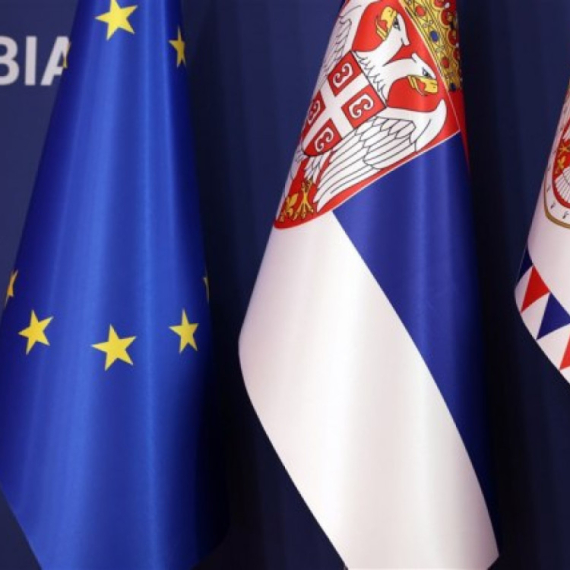
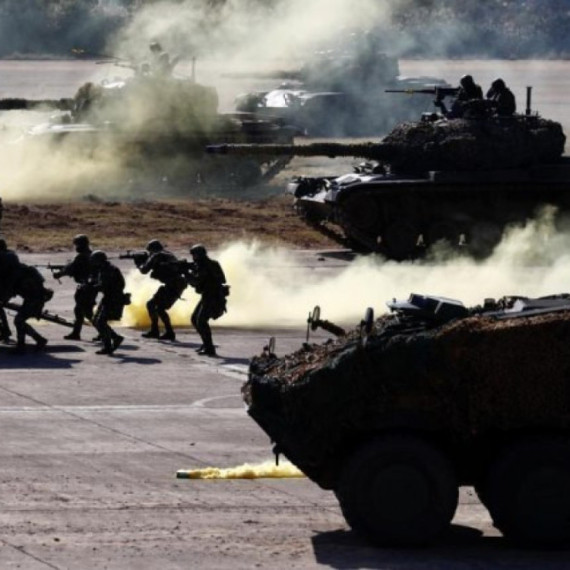
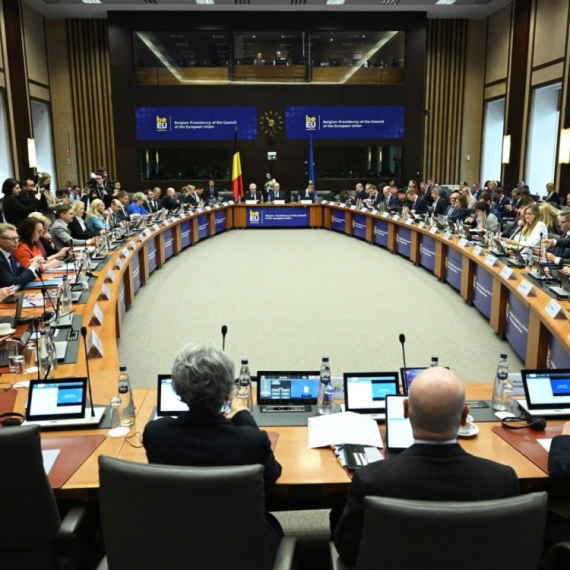
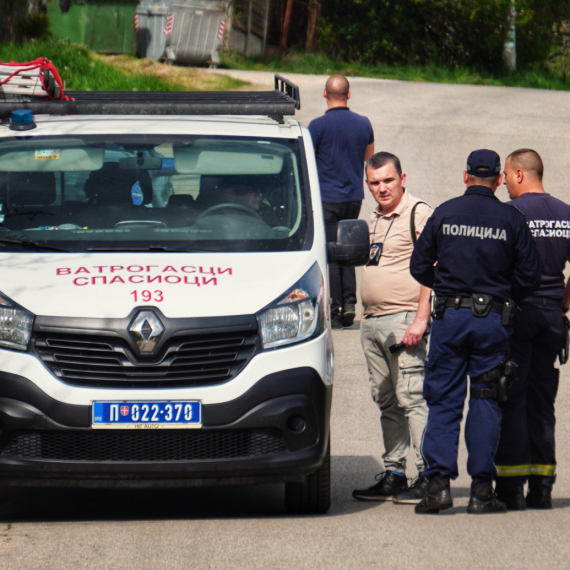
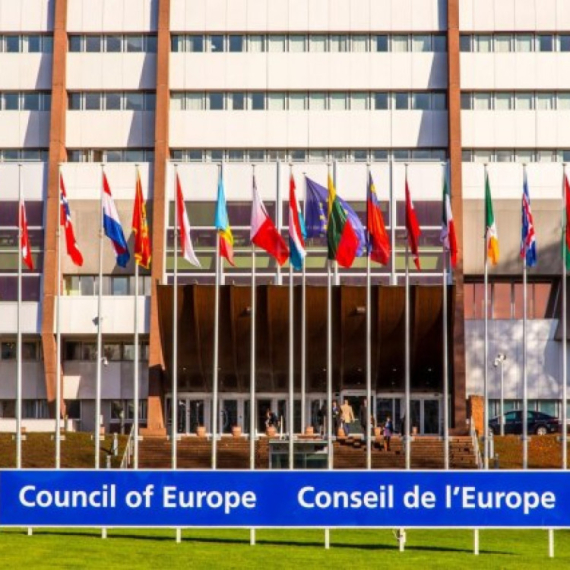
















Komentari 22
Pogledaj komentare